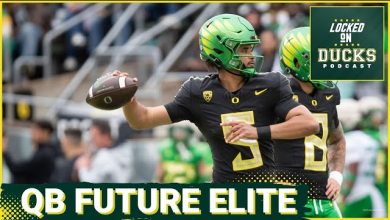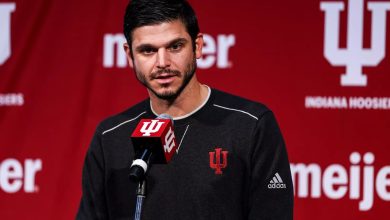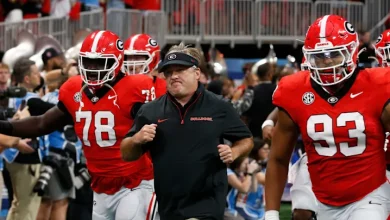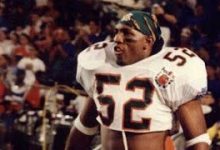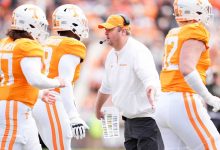Oklahoma Sooners head coach Brent Venables is addressing one of the biggest challenges any coach faces: building a consistent program.
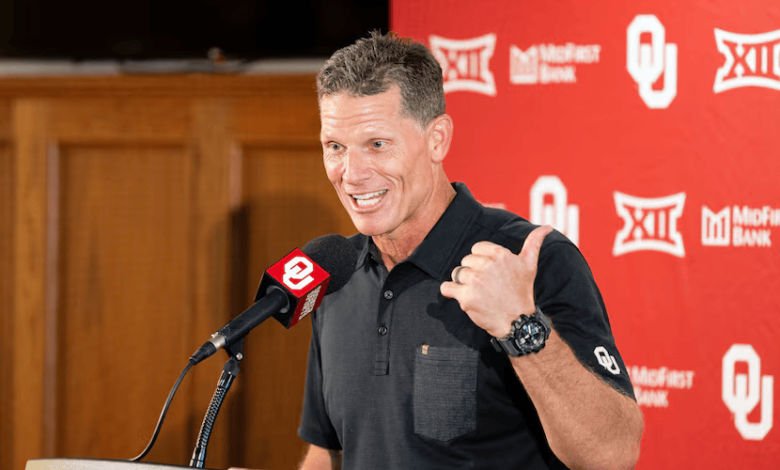
In the world of college football, few programs come with the legacy and prestige of the Oklahoma Sooners. The Sooners have a rich history of success, with multiple national championships, a consistent presence in the College Football Playoff rankings, and an unwavering fan base. But with all the glory that comes with coaching at a storied program like Oklahoma, there comes a daunting challenge: maintaining that success year after year.
For Brent Venables, the new head coach of the Oklahoma Sooners, this challenge is personal. After taking the helm in 2022, Venables entered a program with an incredible pedigree but also with some issues that needed addressing. As a coach who has spent much of his career at the highest levels of college football, including as a coordinator for some of the most successful teams in the nation, Venables understands that building a consistent program is one of the hardest tasks a coach can face.
Venables’ task is not just about getting the team to win; it’s about establishing a culture that can handle success, manage expectations, and sustain excellence in the long term. In this article, we’ll explore the key challenges Venables faces in his mission to build a consistent program at Oklahoma and how his experiences, leadership style, and strategic decisions can shape the Sooners’ future.
The Historical Context of Oklahoma Football
Before diving into the specific challenges that Venables faces, it’s important to understand the historical context of Oklahoma football. The Sooners have long been one of the elite programs in college football, with a tradition of success that dates back decades. Oklahoma has won multiple national championships and has produced a long list of NFL players, Heisman Trophy winners, and legendary coaches.
Under previous head coach Bob Stoops, who led the program from 1999 to 2017, Oklahoma experienced sustained success. Stoops turned the Sooners into perennial national title contenders, and his success set a high bar for future coaches. Even after Stoops retired, Lincoln Riley took over the program and continued to keep Oklahoma among the nation’s elite, consistently winning Big 12 titles and making playoff appearances. However, Riley’s departure to USC in 2021 left the Sooners searching for a new leader—a task that ultimately fell to Venables.
While the Oklahoma program has a history of winning, maintaining that standard year in and year out presents a unique set of challenges, especially in the ultra-competitive landscape of modern college football.
The Challenge of Sustaining Success
One of the hardest challenges any coach faces is the ability to build a program that isn’t just successful for a season or two but remains competitive for the long haul. For Venables, this involves not only winning games but creating a culture that promotes consistency, adaptability, and long-term success.
At a program like Oklahoma, the expectations are always high. The Sooners are used to winning, and they expect nothing less. However, maintaining success year after year, especially in the face of constant change, presents a number of obstacles:
1. Recruiting at a High Level
Recruiting is the lifeblood of any college football program, and for Venables, building a consistent program at Oklahoma begins with attracting elite talent. Oklahoma has a strong recruiting foundation, but in the competitive environment of college football, that’s never enough. Venables has to compete against programs like Alabama, Georgia, Ohio State, and others, who have similarly high standards and resources.
The challenges of recruiting at Oklahoma are further compounded by the changing landscape of college football. With the introduction of the NCAA’s Name, Image, and Likeness (NIL) rules, players have more opportunities than ever to benefit from their athletic abilities outside of traditional team compensation. While this presents new opportunities for players, it also creates new challenges for Venables in maintaining a competitive edge. He must work to build relationships with recruits while also navigating a rapidly changing landscape where financial incentives, both in the form of NIL and other factors, play a huge role in the recruitment process.
Moreover, recruiting is not just about bringing in the best high school athletes but also about developing them into mature, skilled players who can contribute to the team’s success. Venables understands that a successful program is one that recruits not only talent but also character, work ethic, and leadership potential.
2. Building Depth and Developing Players
Recruiting elite athletes is only one part of the equation; developing them is another. For a program like Oklahoma, which has high expectations every season, it’s crucial to have a deep roster that can withstand injuries and adapt to the challenges of a long, grueling season. While recruiting elite players may get the headlines, building depth and developing those players into contributors is what keeps a program competitive year in and year out.
Venables, having worked as a defensive coordinator for Clemson for several years, knows that success is often built on depth. For Oklahoma, building a team that can consistently compete at the highest levels requires a strong emphasis on player development. Whether it’s improving technical skills, enhancing physical conditioning, or fostering mental toughness, the Sooners need players who are ready to step up at any given moment.
Additionally, Venables faces the challenge of developing a balanced team. Oklahoma has had an explosive offense for many years, but a consistent program requires excellence on both sides of the ball. Venables is known for his defensive prowess, and while he’s already begun to improve Oklahoma’s defense, developing a complete team that performs at a high level in all aspects of the game will be a crucial step toward consistency.
3. Adapting to Changes in College Football
College football is changing rapidly, with new conference alignments, the implementation of NIL, and the impending expansion of the College Football Playoff. Venables has to not only win in the present but also prepare for a future that may look very different from the past.
Oklahoma’s move from the Big 12 to the SEC in 2025 will be one of the most significant changes in the program’s history. The SEC is home to some of the toughest teams in college football, and for Venables, the challenge is not just maintaining success but adapting to a more competitive environment. The Sooners will face tougher competition on a weekly basis, which means Venables will need to adjust his strategies and elevate the program to new heights.
4. Handling Expectations and Managing Pressure
The pressure on Venables is immense. When a coach takes over at a program like Oklahoma, the expectations are sky-high from day one. Every season is viewed through the lens of championship contention, and anything short of a major bowl game or playoff appearance can be seen as a failure.
For Venables, managing those expectations is a delicate balancing act. He needs to create an environment where his players can focus on development, teamwork, and improvement without being overwhelmed by the weight of expectations. At the same time, he needs to motivate his team to perform at the highest level and push for championships. This balance is perhaps one of the most difficult aspects of coaching at a high-profile program.
Venables also has to manage the pressure that comes from a fanbase that has grown accustomed to winning. Oklahoma fans are passionate, and their support is unwavering, but that can also lead to unrealistic expectations. The challenge is not just in winning games but in keeping the team grounded and focused on the long-term goals rather than immediate gratification.
Venables’ Leadership Philosophy
While the challenges are many, Brent Venables brings a leadership philosophy to Oklahoma that could help the Sooners build the kind of consistent program they’re looking for. His approach is rooted in discipline, culture, and player development—principles he learned during his tenure as Clemson’s defensive coordinator, where he was part of two national championship teams.
Venables places a strong emphasis on the fundamentals of the game. He is known for his meticulous attention to detail, which ensures that his teams are well-prepared for every situation. This emphasis on preparation helps teams perform under pressure, whether in a tight game or against tough competition.
Another key element of Venables’ leadership style is his focus on building a strong team culture. He understands that creating a cohesive, resilient team is just as important as acquiring top-tier talent. Venables encourages his players to take ownership of their development and to hold each other accountable. He believes that the best teams are those where every player is committed to improving, and every player has a role to play in the team’s success.
Finally, Venables places a significant emphasis on discipline. In a high-stakes environment like college football, discipline is crucial for success. Whether it’s adhering to strict training regimens, following team rules, or maintaining focus during games, Venables believes that discipline is the foundation of a consistently successful program.
Looking Toward the Future
As Brent Venables continues to build the Oklahoma Sooners into a consistently successful program, the challenges will only grow. The landscape of college football is rapidly changing, and Venables will need to continue adapting to these changes while staying true to the traditions and values that have made Oklahoma a powerhouse.
However, if there’s one thing that Venables has shown throughout his career, it’s that he’s more than capable of meeting those challenges. With his leadership, the Sooners have a bright future ahead, and the road to sustained success is being paved under his guidance. Whether it’s recruiting, player development, or adapting to new competition, Venables is taking on one of the most difficult challenges in coaching—and doing so with the confidence and determination needed to succeed.



